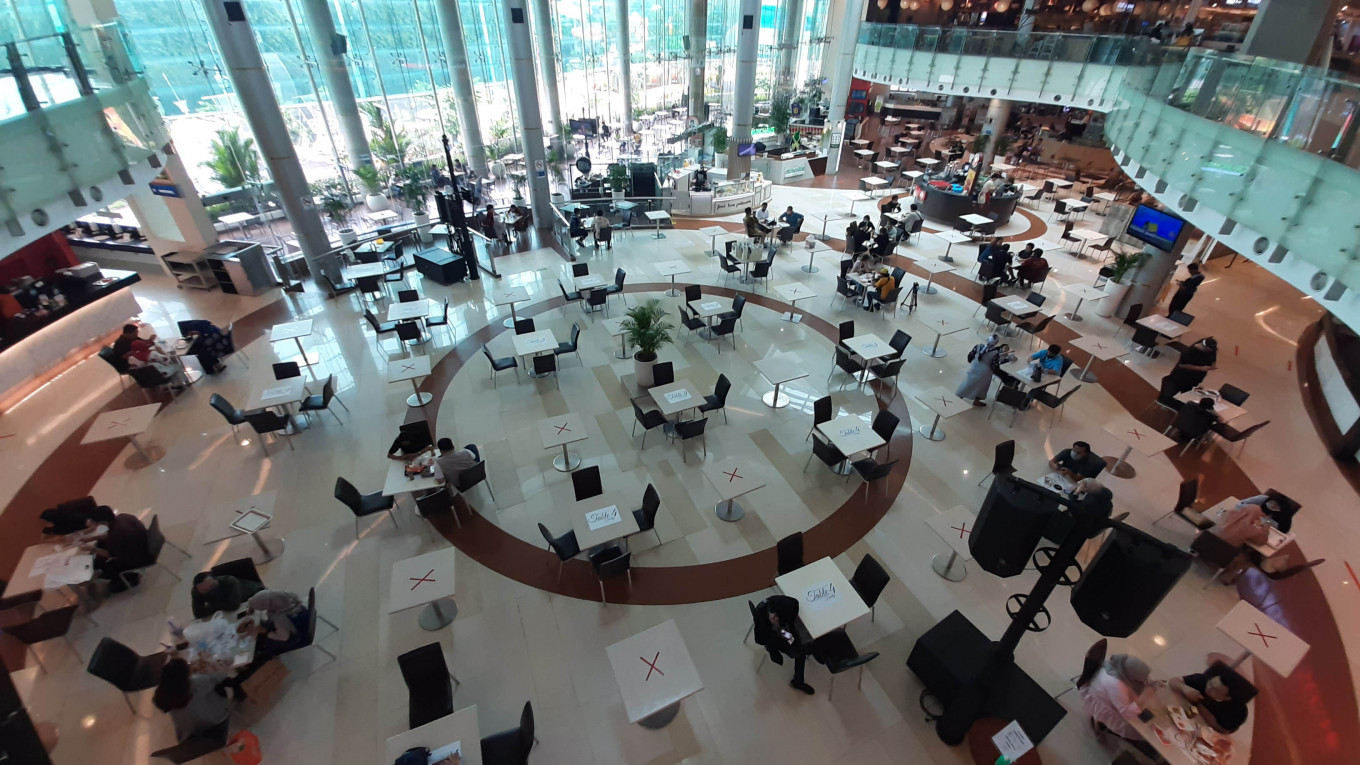Popular Reads
Top Results
Can't find what you're looking for?
View all search resultsPopular Reads
Top Results
Can't find what you're looking for?
View all search resultsHow to get financially fit in the 'new normal'
If we have to adjust our lives to this so-called “new normal”, will there be changes to our finances?
Change text size
Gift Premium Articles
to Anyone
T
he coronavirus that hit us in early 2020 is not just a health crisis, but also a disaster for the economy. Corporations went bankrupt, employees were laid off, bad debts increased, and, in the worst-case scenario, the global economy might experience negative growth. At the same time, the government has imposed social distancing and other restrictions to keep the virus from spreading. There is no doubt that how we go about our lives and finances has changed, either gradually or drastically.
Currently, there is a discussion on relaxing the large-scale social restrictions to start up the economy while still adhering to health protocols related to the virus until the pandemic is under control or a vaccine has been found, also known as the “new normal”.
Regardless of the timing, if we have to adjust our lives to this “new normal”, will there be changes to our finances? There may be many changes, or none at all, depending on each person’s circumstances. Having said that, presented here advice I can share to keep one’s financial health in tip-top condition.
Review your personal budget
First, keep track of your income and – especially – your expenses on a daily basis.
Second, identify changes that have happened to your budget. For example, when the pandemic started, many companies enacted a work-from-home policy, leading to less time at the office and more time at home. In this situation, expenses related to transportation ought to decrease. However, there are also those who are not confident enough to take public transportation and choose to use a personal vehicle instead, hence spending more on gasoline, tolls and parking fees, as I've experienced.
Another factor is face masks, hand sanitizer and other health related items that have become necessities. Expenses related to these should have gone up. Or not? Just remember, health is a priceless asset. All these factors are necessary to make an accurate budget.
Third, separate needs from wants. What is a need? Something essential, something that will affect your ability to live. In this era of non-stop social media and easier access to loans, some tend to mistake wants as needs. But after experiencing large-scale social restrictions and increasing uncertainty, I hope many can now do a better job in differentiating the two and prioritizing the most important.
Don’t have a budget to be reviewed yet? It is not too late to start making one.
Prepare emergency funds
Nowadays, the term can be heard frequently, and people are realizing its importance. Where to start? After reassessing your expenses for the budget, you can get a clear picture as to how much is needed to cover your monthly essential needs. How much is needed for emergency? Consider things well if you have funds to cover three months of your essential needs. It's even better if the fund is sufficient for six months, and it is best to have 12 months covered. It doesn’t hurt to take extra precaution, since we know everything could turn over in a matter of seconds. Where to put it? Store your funds in a place or instrument that is not affected by market volatility, with no administration cost (if possible) and can be withdrawn at any time.
I suggest you don’t wait until the end of the month to deposit money into your emergency funds. Make it a commitment, develop a habit to put aside money for emergency funds at the beginning of the month before you use it for other expenses. Be disciplined, it helps to achieve the desired amount earlier rather than later. The number needed may sound daunting. Therefore, start now.
Do not forget to invest
Investment helps to cover our children’s education expenses, supports you in achieving your financial goals and can provide enough cash flow to keep up our lifestyle even after retirement. I cannot emphasize enough the importance of investing, because it is obvious. It is a must. Put funds regularly in your investment pool, and similar to emergency funds, do not wait until the end of the month. Allocate the funds before making other expenses.
Having said that, investment activity depends on a person’s analysis and expectations as well as the market situation. Currently, the market is volatile and uncertain. Yet, by looking at it differently, it can also be the right time to invest, as prices are on discounts. Do not force yourself to invest if you are still unsure. Take your time and gain the necessary knowledge before taking action.
There is (essentially) no difference between managing your finances in the "new normal" era and before the pandemic, though most people did not take the necessary preparation to ensure their finances could overcome such a shock. Hopefully, we have learned our lessons and understand the importance of financial planning.
Let's effectively manage our own finances for our own benefit in the future. All the best for all of you. (wng)
***
Pandu W. Soeprapto is a graduate of the Bandung Institute of Technology (ITB) and Monash University in Melbourne, Australia. He is currently a corporate credit analyst, and is particularly passionate about teaching and writing. Find him on Instagram @pandu_wi_soe.











